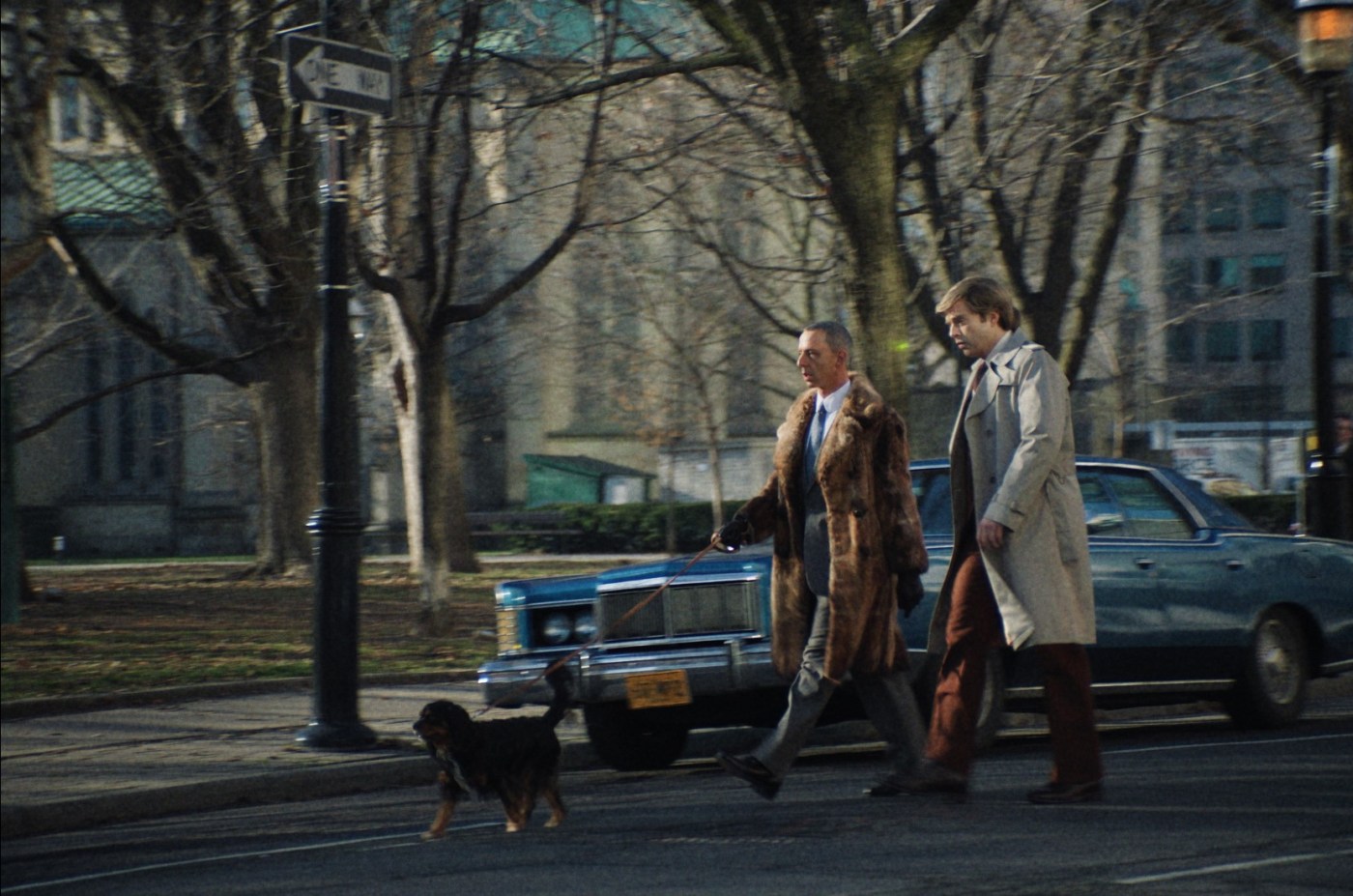
‘The Apprentice’ a portrait of Trump as young man
There’s a scene late in “The Apprentice,” the new film directed by Ali Abbasi about the relationship between Donald J. Trump and the attorney Roy Cohn, that’s akin to Dr. Frankenstein realizing in horror just what he has made.
An ailing Cohn (Jeremy Strong) is being uncomfortably feted at the palatial Florida estate Mar-a-Lago for his birthday. His longtime protege, Donald Trump (Sebastian Stan), seems to have ascended to the height of his powers (how things would develop three decades later is not yet known). Empowered by his own hubris, Trump builds and borrows with impunity, and a freewheeling sense of gleeful combativeness.
After an aggressive and somewhat insulting birthday toast, Trump wheels out an American flag birthday cake festooned with sparklers, an ode to Cohn’s oft-repeated professions of love for America. Cohn, for the first time in the film, looks shaken.
Abbasi’s “The Apprentice,” written by Vanity Fair political reporter and Roger Ailes biographer Gabriel Sherman, is a portrait of the former president as a young man. Stan delivers the performance of his career so far, embodying Trump from the early 1970s to the 1990s. The plot concerns Trump’s learning at the feet of Roy Cohn, the powerful attorney and political fixer known for his work with Joseph McCarthy, and who brags in the film of sending the Rosenbergs to the electric chair.
Abbasi opens the film with punk rock flair, with young Donald, his blond, Redford-inspired coif whipping in the wind, hitting the streets of Manhattan, mooning over the rundown Commodore Hotel, making his way inside the dark, luxe interior of the private Le Club.
There, Cohn will send over one of his boy-toys to invite Donald to dinner with his coterie of gangster clients. Donald is a striver, looking to please his cruel father Fred (Martin Donovan), and he hopes that with Roy on his side, they’ll best a housing discrimination lawsuit brought against them by the Department of Justice.
It’s through this lawsuit that Cohn imparts the three rules that Trump has since lived by. One: Attack, attack, attack. Two: Admit nothing, deny everything. Three: Always claim victory, never admit defeat.
This is the method by which Abbasi and Sherman go about making their argument about Trump. They lay it all out for the audience to see, but don’t spell out the message that we’re to take away from it all — that would put too fine a point on it. The naif we meet in the beginning becomes something far more terrifying as he is empowered by his success (or the impression of it), hopped up on janky diet pills, following the rules imparted to him by his impossibly complicated proxy father figure, Roy.
Both the film’s style and the performances evolve to capture the eras we traverse. Cinematographer Kasper Tuxen uses different film formats, with grainy Super 16mm and European disco hits of the ‘70s giving way to the camcorder and VHS images of news cameras in the ‘80s, reflecting the environments in which the media-obsessed Trump exists. The rich, dim interiors of Roy Cohn’s cloistered world become the gaudy, golden posturing of Trump’s living spaces.
Stan and Strong’s astonishing performances also deepen and develop over the course of the film. Initially, Stan imparts only a small flavor of the familiar Trump flair; as his Trump ages, his delivery becomes more pronounced, his accent and cadence informed by both his father Fred and his mentor Roy. Strong is transformed as Cohn, slack-jawed and dead-eyed but constantly in motion, propelling his lithe, tanned body forward with a driven intensity in business and in pleasure. His dawning horror toward the end of the film is startling only because we realize that Roy might actually have some kind of conscience, his appetite for power eclipsed only by his student’s.
(“The Apprentice” contains sexual content, some graphic nudity, language, sexual assault, and drug use)
“THE APPRENTICE”
Rated R. At the Landmark Kendall Square Cinema, AMC Boston Common, South Bay Center, Causeway, Alamo Drafthouse Seaport and suburban theaters
Grade: A-


